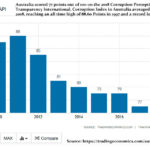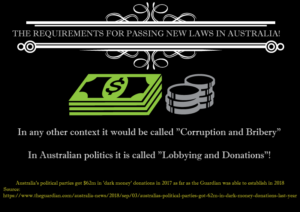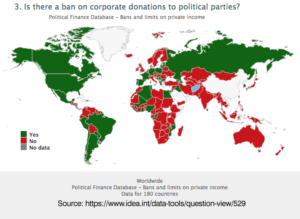
Poor old gullible Gladys #koalakiller Berejiklian has all the emotional desires, so many of us have, and the demands of a taxing job that exacerbates her needs. She has always known she might have a lot to deal with, which explains why she has consolidated so many public departments. She just had to silence so many disparate voices making weekly demands of her, to lessen her obligations so that she could focus on matters of the heart. I mean, how many of us have not made the perfect choice of partners, that in later years reflectively ask, “WTF was I thinking?” Give her a break; it was a one-off mistake. “Princess” Gladys’s ruby complexion is a reflection of her private embarrassment. Her handling of public matters, although, has been exemplary – according to her liberal colleagues. I mean, it’s not like she makes a lot of mistakes as a public servant.
So she spent too much money on ferries built overseas with asbestos and too tall to fit under bridges in Parramatta River. But who could have predicted that? So her trains don’t fit the rail lines or go through the tunnels in the Blue Mountains. But who else could have built those trains? Bejesus, who goes to those places by ferry or train anyhow! So she allowed state forests to be logged and Koala habitats to be destroyed. So she approved the expansion of a quarry in the Hunter which will eliminate 52 hectares of prime koala habitat. So she asserted that those lazy public service bludgers (aka “essential workers“) were not worthy of a mere 2.5% wage rise during a recession. Besides the coffers were depleted after the extravagant pay rises awarded to all 65 coalition politicians in Macquarie St earlier in 2019. Still, some public servants were rewarded, such as the $87K rise to our Police Commissioner. You know him, Mick, the fellow who defended the laws Gladys brought in to strip search our kids. A sentiment echoed by the NSW Police Minister, David Elliott.
She is so good with money, though. She got one million dollars for Vales Point Station. Not her fault that it was valued at $730M. Yeah, OK, there were a couple of over-runs. I mean, who doesn’t overrun a budget on the light rail by $3B and Stadiums by $100M? Sadly the modern revamp to replace that old “dump” of a Museum at Ultimo which they were very keen to give to their donor property developers, will be retained after protests by all those caffe-latte-drinking leftist protestors. Moving the Powerhouse Museum to a flood plain was a mistake anyone could make when it was such a dry season, that bushfires were all the rage.

Speaking of the worst bushfires in NSW, wasn’t that a confusing time? Not helped by allegations that Gladys refused assistance by the Navy for fire-threatened south coast towns. Berejiklian pulled up short of suggesting our honourable prime minister was lying. Eliminating public service bloat is important – achieved by cutting rural fire service capital expenditure by 75% ($49.9M). These were efficiency dividends, and besides, they still had 25% of their funds. Such unneeded bloat was presumably why she needed to get rid of 26 out of the 36 specialist fire management officers responsible for doing hazard reduction? Ten officers are more than enough for a State area of over 80M hectares. Slashing 500 full-time positions from National Parks and Wildlife was just being economically rational, surely? She was just clearing the bush her own way, and who could have predicted climate change would result in more significant fires? Probably why she thought cutting $12.9M from the state’s Urban fire fighting budget was an act of foresight.
Think of all the generous help she gave the federal government and irrigators by supporting the water trading of the Murray Darling Water Plan designed in 2012 whose Authority acted unlawfully when it “completely ignored” climate change projections for the determination of water allocations. Gladys did later begin to recant by considering new water-sharing plans for the Namoi River and water registries. This didn’t include the water registries of Helen Dalton’s Bill which would have listed MP’s water interests. That unsuitable Bill was allowed to lapse. Unlike the Broken Hill pipeline or profitable fracking at Narrabri that threatened water security, as they’d already been approved and one doesn’t want to antagonise donors by reversing decisions! So country towns in NSW ran out of water, Warragamba Dam got polluted, and we had to resort to the desalination plant in Kurnell that relies heavily on fossil fuels to run, making Sydney resident’s water bills to rise. Gladys Berejiklian’s degrees were in Arts and Commerce, so it is unfair to expect her to understand climate science and the causality of events that lead to droughts. It is no wonder she refused to meet with representatives of the Menindee Lakes. I mean, what did they expect her to do, raise the fish from the dead? Folks just expect too much from our Premiers who are far too busy meeting reputable donors or partaking in $950/ticket luncheons (a price just under the $1K disclosure guidelines) with dignitaries.
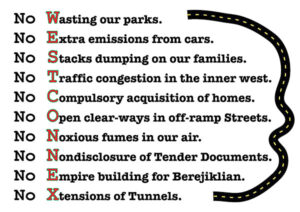
Gladys is good for business. She is raising so much money for her donors from the public and transport industry, via Sydney’s nine toll roads with a locked-in 4% rise in tolls per year till 2060. That donor, Transurban (Westconnex), may have struggled with the planning to get NSW’s road infrastructure built, but Berejiklian’s support did not waver. She not only supports her generous donor, but her ongoing support to the legal industry has been commendable. NSW will be tied up in litigation for decades because of the compulsory acquisitions of houses and the structural damages to still-standing homes wrought by Westconnex’s construction activity.
Let’s not forget the prescience she exhibited when she hired Aspen Medical (whose director hid $15M in the British Virgin Islands) for $57m for Covid-19 work in Newmarch House (which had 19 Aged Care deaths) and for that lovely cruise ship, the Ruby Princess! She seeks out the “best quality” advice when she needs it. But these errors are past us, and now our business-focused Premier has this Covid-19 infection all under control, almost!
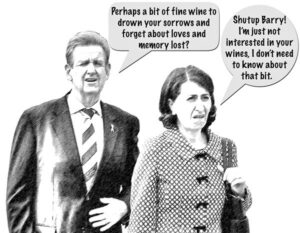
The implications of corruption implicit in this ICAC investigation are over the top, surely? It’s not like someone gave Gladys a bottle of Grange Hermitage that she forgot. Although memory failures featured significantly in her testimony to ICAC, but then who needs an excellent memory to run a State? It’s not like she was accustomed to maintaining a detailed memory with “meticulous focus on every minor policy detail“.
I mean has the shock, horror, scandal news rags of Murdoch said anything critical of Gladys other she had been “falling for a bloke called Daryl“? Of course not, so honestly, there isn’t anything to be seen here. Just move along and don’t forget to vote them back in, on March 2023! Besides, who will remember any of her government’s small foibles by then?
